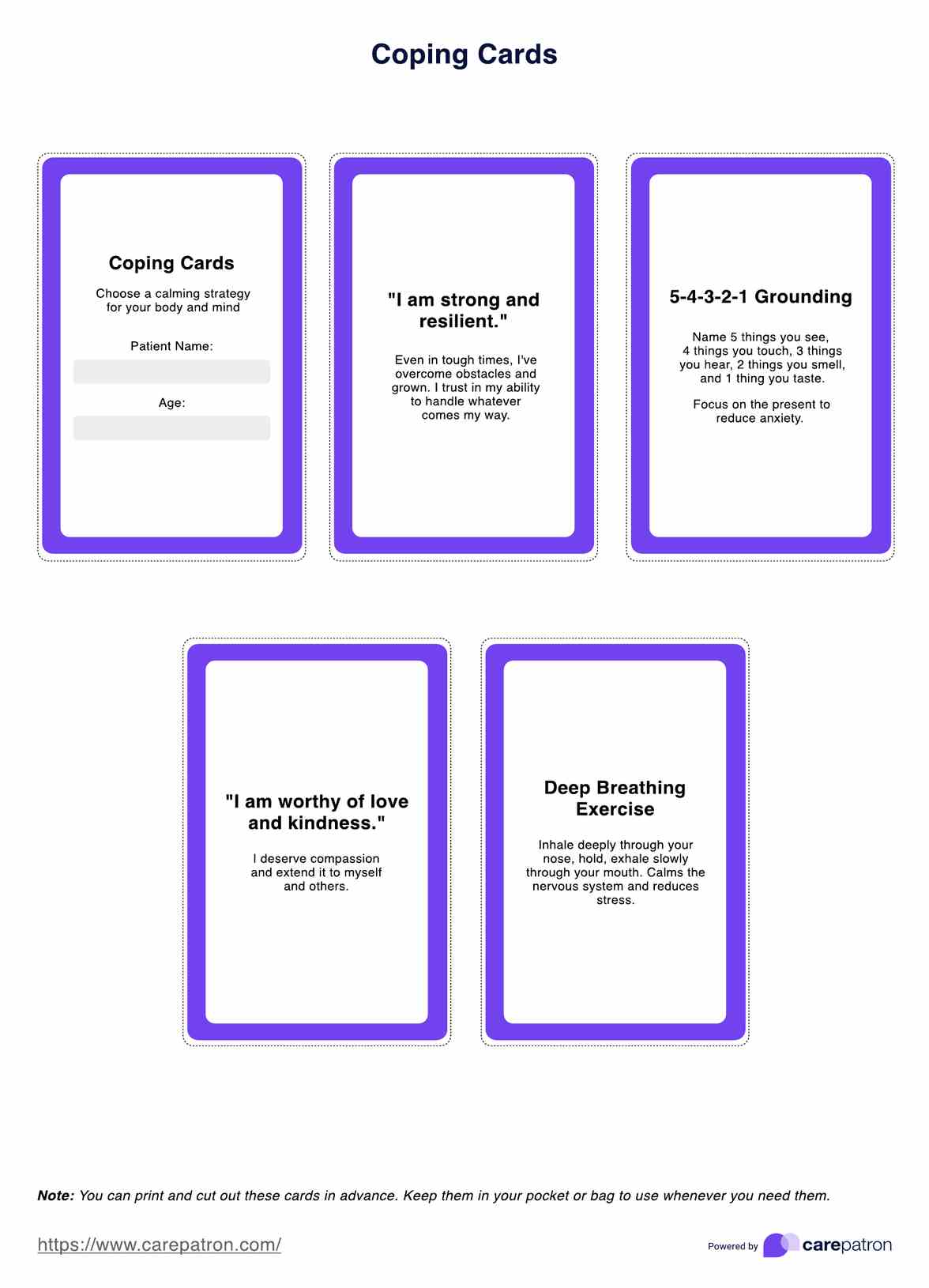Coping cards can benefit individuals experiencing various mental health challenges, including anxiety disorders, panic attacks, depression, PTSD, and other stress-related conditions. They are suitable for individuals of all ages, including children, adolescents, and adults.

Coping Cards
Coping Cards can aid clients in managing distressing emotions. Explore examples, download a free sample, and learn how to integrate them into therapy effectively.
Coping Cards Template
Commonly asked questions
Coping statements are affirmations or phrases individuals can use to manage distressing emotions and challenging situations. Examples include "This too shall pass," "I am capable of handling this," and "I am safe and in control."
In cognitive-behavioral therapy (CBT), coping cards are a practical tool to help individuals challenge negative thoughts, manage emotions, and develop healthier coping strategies. They serve as a reminder of cognitive restructuring techniques taught in therapy sessions.
EHR and practice management software
Get started for free
*No credit card required
Free
$0/usd
Unlimited clients
Telehealth
1GB of storage
Client portal text
Automated billing and online payments











